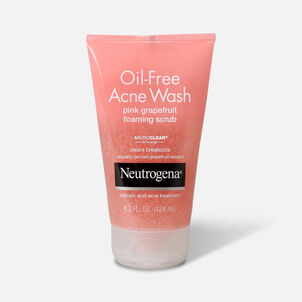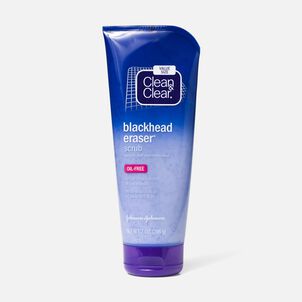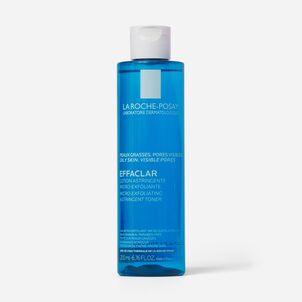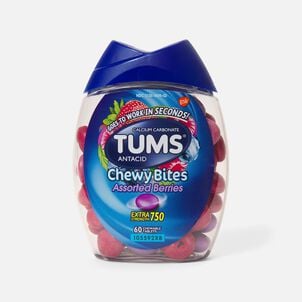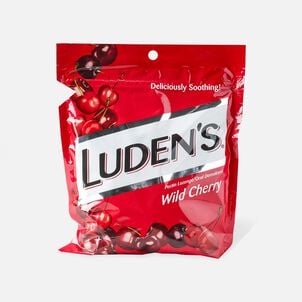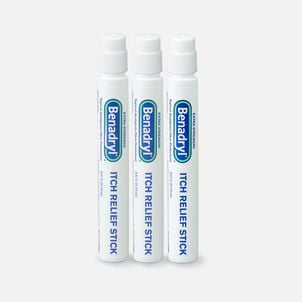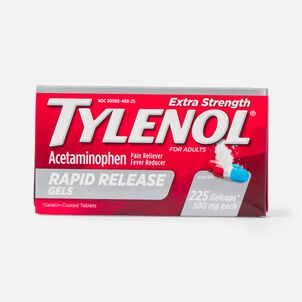Exfoliation is a term that you probably hear all the time. You might see an exfoliation product in a commercial, hear a celebrity talk about their exfoliation routine on a podcast or see a character on a TV show exfoliating before bed. But is it actually a part of your skincare routine?
While it might seem like a technique reserved for divas and Instagram influencers, exfoliating has practical benefits that even the most down-to-earth can appreciate. Here's a little bit more about exfoliation - and why you should give it a try.
Types of exfoliation
Exfoliators can come as creams, cleansers and toners. You can also buy exfoliator pads for easy application.
Here's what you should know about the various kinds of exfoliants.
Physical
Physical or mechanical exfoliation is the most well-known kind. It refers to using a physical scrub made with natural ingredients like walnut shells, rice powder or sugar crystals, or even artificial ingredients like plastic microbeads. You can also exfoliate with a washcloth, sponge or loofah and some kind of lotion or body wash.
Physical exfoliation also includes professional services like microdermabrasion, which involves an aesthetician or dermatologist using a special tool to remove dead skin cells.
It's easy to damage your skin when using physical exfoliants, especially if you use harsh ingredients, exfoliate too often or scrub too hard. Limit physical exfoliators to a few times a week or every other day.
Chemical
Chemical exfoliants are more commonly recommended by dermatologists and are more powerful than physical exfoliants.
There are two types of chemical exfoliants: Alpha Hydroxy Acids (AHAs) and Beta Hydroxy Acids (BHAs). Some skincare products will contain both AHAs and BHAs.
AHAs, which include glycolic acid and lactic acid, can reduce sun spots, fine lines and acne scars. BHAs include salicylic acid, which is a common ingredient in acne-fighting products. In general, AHAs are better for those with dry skin, while BHAs are best for those with oily skin.
Chemical peels are a type of chemical exfoliant most commonly performed by a licensed aesthetician or dermatologist. They are a more powerful version of what you can buy at the store.
Enzymatic
Enzymatic exfoliators are similar to chemical exfoliators, but less powerful and possibly less irritating. If you've never used a chemical exfoliant before or have sensitive skin, start with an enzymatic one first.
These exfoliators are fruit-based, using strawberries, papayas, mangos and more.
Benefits of exfoliation
Exfoliating has many advantages and can be a regular part of your daily skincare routine. Here are just a few reasons to give it a shot.
Products absorb deeper
Because exfoliating your skin removes the top layer of cells, it allows other products to penetrate deeper. Depending on your skin, it could mean the difference between a product having its desired effect or not.
If you're using a product like retinol or a hydrating serum, you'll see more benefits if you add an exfoliant in your routine. Using a chemical exfoliant also makes your moisturizer absorb deeper into your skin's surface.
Can reduce acne
Using BHAs like salicylic acid is one of the most popular and well-known ways to fight acne. If you've used acne-specific products before, it's likely that you're familiar with salicylic acid. You can find salicylic acid in a cleanser, toner, mask or lotion.
Once the acne has healed, use chemical exfoliants to minimize any lingering acne scars. This can take some time, so be patient.
Can reduce signs of aging
When used regularly, chemical exfoliants can help reduce signs of aging like fine lines and wrinkles. They can be used on top of a retinol product if your skin can handle it.
Chemical exfoliants can also even out skin tone damage caused by the sun.
Downsides of exfoliation
Because exfoliants are so powerful, they can have side effects when used incorrectly. Here's what to look out for.
Can cause irritation
Strong exfoliators are actually capable of harming your skin. Overusing a physical exfoliator can lead to increased irritation, acne and other problems. You can also cause micro-tears in your skin, which can then become infected. In general, be careful about using a physical exfoliant on your face.
Before adding a chemical exfoliant, spot test somewhere to check for allergies. This is good advice when adding any new product to your skincare routine.
You should also use a moisturizer when exfoliating. Using an exfoliant without moisturizing afterwards can lead to increased acne, because the skin will produce more oil to compensate for dryness.
Can increase sun sensitivity
Chemical exfoliants make your skin more sensitive to the sun, so make sure to use sunscreen. If you don't, you may get more sunburns and residual peeling.
Be especially careful if you're adding new chemical exfoliants in the summer, or if you're consistently spending multiple hours outside. If you've been exfoliating, you should wear sunscreen every day, even when it's cloudy or rainy.
How to start using an exfoliant
Interested in adding an exfoliant to your daily routine? Start small with one product and give it a few weeks before adding anything else. Even if the instructions say you can use it daily, start with a few times a week. Using an exfoliant too often can be irritating to your skin, and that irritation can take some time to build up.
If you're already using a prescription skincare product, adding an exfoliant may be overkill. Ask your dermatologist if there will be any potential side effects.
There are plenty of exfoliants available at drugstores and grocery stores. Don't assume you have to buy high-end products to get the benefits of exfoliating.
Be sure to exfoliate your face and body
Some people think that exfoliating should only be done for your face, but it's also useful for the rest of your body.
Your body has thicker skin than the face, so you can use facial products on your body without having to worry about a negative reaction. Exfoliating your body will also have the same benefits, like increased absorption, smoother skin and less acne.
-
Thanks for visiting the FSA Learning Center! To stay on top of all FSA news that can affect your health and financial wellness, be sure to follow us on Facebook and Twitter.
Zina Kumok
Zina Kumok is a freelance writer specializing in personal finance. A Certified Financial Health Counselor and Student Loan Counselor, she also works as a money coach helping people one-on-one at Conscious Coins. She has been featured in Lifehacker, DailyWorth and Time. She paid off $28,000 worth of student loans in three years.

